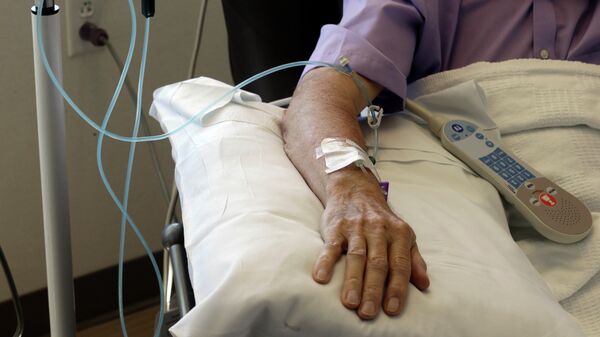This is the first time in history the FDA has approved a drug based not on its effect on a specific tissue, but based on its effect on a specific genetic sequence.
"Until now, the FDA has approved cancer treatments based on where in the body the cancer started — for example, lung or breast cancers," said Richard Pazdur, acting director of the Office of Hematology and Oncology Products at the FDA's Center for Drug Evaluation and Research and director of the FDA's Oncology Center of Excellence. "We have now approved a drug based on a tumor's biomarker without regard to the tumor's original location."
Under normal circumstances, drug makers test their potential cures on a specific organ or tissue before seeking approval from the FDA. Initially developed for the treatment of melanoma, Keytruda has already received several approvals from the Agency, starting in 2014. In 2015, Keytruda made a name for itself when it cured former US President Jimmy Carter's brain tumor.
This time, Keytruda was given to a group of patients who suffered from advanced forms of different types of cancer, including strains affecting the pancreas, prostate, uterus and bones. The results were exceptional, as tumors in 66 patients shrank significantly. In 18 cases the tumors disappeared and haven't returned, according to a study published in Science.
The patients all carried genetic mutations that scientists refer to as "microsatellite instability-high" (MSI-H) or "mismatch repair deficient" (dMMR). This means their forms of cancer affected the body's built-in ability to repair DNA in a damaged cell. Keytruda targets the human immune system in general, helping it identify and attack the cancer cells that tumors are made of.
"To finally see now proof that targeting the immune system improves the situation and doesn't necessarily correlate with one specific cancer… that's a really powerful message," says Dr. Jack Jacoub, a medical oncologist and director of thoracic oncology at MemorialCare Cancer Institute at Orange Coast Memorial Medical Center in Fountain Valley, California.
"The FDA doesn't take these kinds of things lightly," he said. "The data was so good, they had to approve it."
The approval of Keytruda is likely to change the way drugs are tested and approved in general, experts say, as this demonstrates that a cure for cancer must not necessarily be bound to a specific organ. This promises to speed up the treatment progress significantly, experts point out.



